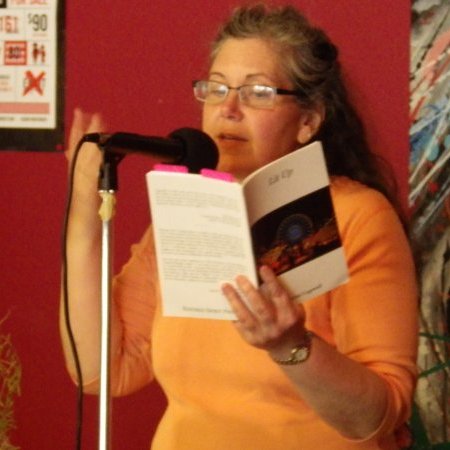- HOME
- MEDIA
- L.Onerva
- Eino Leino
- Eeva-Liisa Manner
- Erään Opon päiväkirja
- Elämänkenttäni
- Elämäni ”viiva”
- Käyttöteoriani – se miten minä ohjaan
- Kulttuuritietoinen ja kansainvälistyvä ohjaus
- Ohjauksen järjestäminen maahanmuuttajakoulutuksessa
- Ohjauksen yhteiskunnallinen viitekehys
- Ohjaukäsite
- Oma opiskeluorientaatio
- Opiskelijoiden yksilöllisyys ohjauksessa
- EETTISET KYSYMYKSET
- Psykososiaalisen kehityksen teoria
- Suhteeni erilaisuuteen ja tehtäväni opinto-ohjaajana
- Opinto-ohjauksen ja erityisopetuksen yhtäläisyyksiä ja eroja
- Kehitykseni opinto-ohjaajana
- Maahanmuuttajan uraohjaus
- Maahanmuuttajien ohjaus ja neuvonta: kuka, mitä, miten?
- Ohjauksen tulevaisuus
- Elämänkenttäni
- Mariana Marin
- Claudiu Komartin
- Mariana Codrut
- Roland Erb
- Romanian poetry
- STORIES
- READING POETRY
- translated Finnish-Romanian
- translated English-Finnish
- translated French-Finnish
- translated Romanian-English
- translated Spanish-English
- translated German-English
- translated Finnish-English
- translated English-Romanian
- translated French-Romanian
- translated French-English
- translated Romanian-French
- translated Romanian-German
June, 2013
Erotessa/Despartire
POSTED IN translated Finnish-Romanian June 13, 2013

| Erotessa
Muistelen minä sinua: Muistelet sinä minua: Muistelemme toisiamme: |
Despartire
Imi amintesc de tine-odata: Iti amintesti de mine-odata: Unul de altul ne-amintim: |
Eino Leino
Romanian version by Magdalena Biela
Laulu onnesta/Cantarea fericirii
POSTED IN translated Finnish-Romanian June 13, 2013

|
Laulu onnesta Kell’ onni on, se onnen kätkeköön, Ei onni kärsi katseit’ ihmisten. |
Cantarea fericirii Cel fericit, ascunda-si fericirea, Caci fericirea nu se vrea privita. |
Eino Leino
Romanian version by Maria Magdalena Biela
Sua katsoa / Sa te privesc
POSTED IN translated Finnish-Romanian June 13, 2013

|
Sua katsoa Sua katsoa mielisin kauvan silmiin, |
Sa te privesc Sa te privesc indelung in ochi as dori, |
L. Onerva
Romanian version by Magdalena Biela
How to travel forever
POSTED IN contemporary poetry June 13, 2013
How to travel foreverHave conversations with people you see
and those you imagine. Position yourself
so the light bounces off the man’s glasses
and opens worlds back to you. Wear clothes
that make everyone you pass shadow you,
hours later they’re still whispering about them.
When you appear in a dream you have tallied
the signposts, traveled far. Eat cinnamon,
it will ooze from your skin like cookies.
Worry the Metro ticket in your palm. In
your pocket. Remember how you came up
the steps into the light, stood at a bar
and had coffee, the branches outside
stirring a soft orchestration upon your face.
Listen to old music, touch his hand.
The sum of you greater than each of you
unmatched, expand into the sky.
TOBI COGSWELL
from the volume LIT UP
Tropiikin alla/La Tropice
POSTED IN translated Finnish-Romanian June 13, 2013

|
Yhden kerran elämässä tuliruusu aukee Sill’ on lehti verinen ja purppurainen huuli |
Un moment in asta viata roza de foc e in floare, doar o noapte infloreste,pana dimineata moare; isi deschide ochi adanci si chematori in soapte, in stamine-are extazul miezului de noapte. Are sangerie frunza, buze purpurii, |
L. Onerva
Romanian version by Maria Magdalena Biela
Juhannus/Sfantul Ioan
POSTED IN translated Finnish-Romanian June 13, 2013

|
Juhannus Minä avaan syömmeni selälleen Minun mielessäin on Juhannus
ja juhla ja mittumaari,
ja jos minä illoin itkenkin,
niin siellä on sateenkaari.
|
Sfantul Ioan Increzator deschid inima mea Adanc, Ioan este in gandul meu
si miezul verii se sarbatoreste,
si daca seara plang, si plang mereu,
adanc in mine curcubeul creste.
|
Eino Leino
Romanian version by Magdalena Biela

Copyright © 2025 by Magdalena Biela. All rights reserved.
